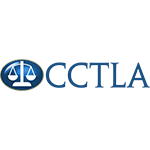California False Claims Act
The California False Claims Act (CFCA) makes it a crime to make false statements when charging the state for goods or services. It is also a crime to fraudulently attempt to avoid an obligation to pay money to the state of California. The experienced California whistleblower attorneys at Cutter Law P.C. can help you understand and protect your rights when it comes to the CFCA.

Quick Links
False claims actions can be taken by the state attorney general against a person accused of trying to defraud the state. If the defendant is found guilty of making a fraudulent claim, he or she can be held liable for treble damages, or damages up to three times the amount of money for which they defrauded the state.
California government code also provides that the guilty person can be fined between $5,500 and $11,000 for each violation of the California False Claims Act.
Qui Tam Lawsuits
A private citizen files a qui tam action against a person who has committed fraud against the government. In California, qui tam suits are filed on behalf of the filer and the state.
The person making the report is eligible to receive a share of the proceeds from the lawsuit. A filer can receive between 15% and 33% of the state’s recovery amount, depending on the value of their role in exposing the fraud. If the state does not intervene, the qui tam plaintiff may recover a share of the proceeds between 25% and 50%.
These lawsuits, when filed in a reasonable period of time, have led to significant recoveries for the state of California.
If you think you have information about a company, even your employer, who is violating California law by profiting from government overpayment or attempting to avoid paying money to the state, you should contact Cutter Law. We can help you right this wrong.
Protection for False Claim Whistleblowers
When an employee files a qui tam lawsuit against an employer under the California False Claims Act, he or she receives protections under the law. If the employer retaliates, the employee is allowed to bring a wrongful termination/retaliation lawsuit.
CFCA retaliation lawsuits must be filed within three years after the termination or retaliation occurs. Damages that a whistleblower can receive in a successful retaliation or wrongful termination lawsuit include:
- Job reinstatement
- Twice the amount of lost pay plus interest
- Special damage compensation for things like reputation damage and emotional suffering
- Reimbursement for attorney fees and litigation costs
The person making the report is eligible to receive a share of the proceeds from the lawsuit. A filer can receive between 15% and 33% of the state’s recovery amount, depending on the value of their role in exposing the fraud. If the state does not intervene, the qui tam plaintiff may recover a share of the proceeds between 25% and 50%.
These lawsuits, when filed in a reasonable period of time, have led to significant recoveries for the state of California.
If you think you have information about a company, even your employer, who is violating California law by profiting from government overpayment or attempting to avoid paying money to the state, you should contact Cutter Law. We can help you right this wrong.
An Example of Whistleblower Lawsuits at Work
To understand how it might work when an employee files a claim against an employer under the California False Claims Act, consider the following scenario.
A bookkeeper for a company that has government contracts to furnish office supplies to state and local government offices discovers that her boss has been charging the public entities more than other customers. She can file a qui tam lawsuit on behalf of the state for the state to recover its money.
After the bookkeeper files her whistleblower suit, her employer places her on a two-week unpaid leave. Then, she receives a termination notice. She suspects the firing is retaliation for her role in uncovering fraud, so she sues her former employer for wrongful termination under the CFCA.
The Statute of Limitations for CFCA and Retaliation Lawsuits
Statutes of limitations are in place to prevent potential defendants from being subjected to unfair or frivolous criminal prosecution or other civil actions. A qui tam lawsuit must be filed within six years after the falsity was committed.
Any civil action related to wrongful retaliation or wrongful termination must be filed within three years of the retaliatory act. Failure to initiate a civil action within this time frame will likely result in immediate dismissal of the lawsuit.
If you suspect that you have been mistreated because you were the relator of falsity to the prosecuting authority in California, you should seek legal advice from the experienced Sacramento civil law attorneys at Cutter Law. If you have actual knowledge of the abuse of state funds, you have the right to report the violation without fear of retaliation, and with robust protections under the California Whistleblower Protection Act.
Federal False Claims Act
If you think your employer has been violating California law to defraud the state, you may also be interested to know that there is a Federal False Claims Act to protect the federal government from fraudulent activity.
The federal act is similar to the California FCA in that an individual can bring a lawsuit on behalf of the government to recover money that has been “stolen” from the federal authorities.
Upon discovery of the false claim, an employee can file a qui tam lawsuit in federal court against his or her employer with the help of a California employment attorney. The federal FCA provides similar protections for employees who bring charges against their employers. The major difference between the two is the amount of damages that a qui tam plaintiff can receive.
Under the federal government code, if the Department of Justice brings an action against an individual or business for fraudulent activities, the qui tam plaintiff receives 15% to 20% of the damages if a federal prosecutor takes over the lawsuit. A filer can recover 25% to 30% of the recovery if a federal prosecutor does not take the suit.
Call Our California Employment Law Firm for Help
If you have reason to believe that your employer or someone you do business with is intentionally defrauding the government, or if you have been wrongfully terminated or have faced retaliation because you reported your employer for fraud, we can help.
You have protection under the California False Claims Act when you alert authorities to fraudulent activities without fear of retaliation from your employer. Our attorneys will fight to protect the state of California and your rights as an employee to stand up to wrongdoing.
Cutter Law is nationally-recognized for defending the civil rights of our clients when they have been violated. Contact us for a free consultation and to discuss your case with one of our skilled attorneys.
Schedule A Free Case Review
"*" indicates required fields
Our Office Locations
Sacramento Office
401 Watt Avenue Suite 100
Sacramento, CA 95864
Phone: 916-290-9400
Oakland Office
Cutter Law P.C.
1999 Harrison Street Suite 1400
Oakland, CA 94612
Related Pages






